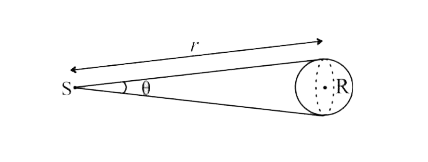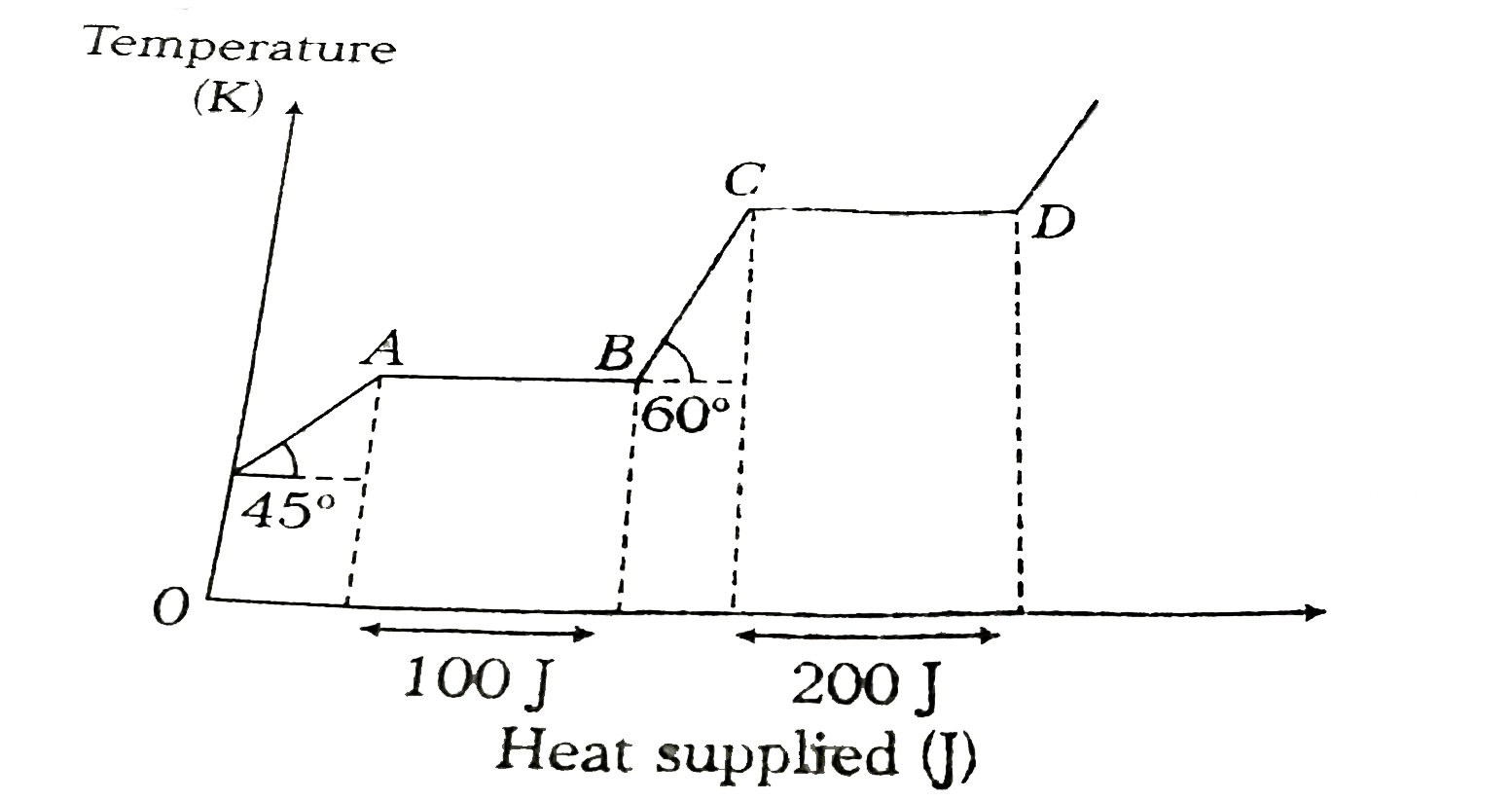A planet radiates heat at a rate proportional to the fourth power of its surface temperature T. If such a steady temperature of the planet is due to an exactly equal amount of heat received from the sun then which of the following statement is true?
(a)The planet’s surface temperature varies inversely as the distance of the sun
(b)The planet’s surface temperature varies directly as the square of its distance from the sun
(c)The planet’s surface temperature varies inversely as the square root of its distance from the sun
(d)The planet’s surface temperature is proportional to the fourth power of distance from the sun
The correct Answer is:C
Total energy received per second
Psun4πr2(πR2),(eσ)4πR2T4=pπR24πr2a
or T4=KR2r2,Tα1√r

Topper's Solved these Questions
- PROPERTIES OF MATTERBOOK - VMC MODULES ENGLISHCHAPTER - PROPERTIES OF MATTEREXERCISE - JEE Main (Archive) Level - 1
48 Videos
- PROPERTIES OF MATTERBOOK - VMC MODULES ENGLISHCHAPTER - PROPERTIES OF MATTEREXERCISE - JEE Advanced(Archive) Level - 2
1 Videos
- PROPERTIES OF MATTERBOOK - VMC MODULES ENGLISHCHAPTER - PROPERTIES OF MATTEREXERCISE - Level -1
90 Videos
- MOVING CHARGES & MAGNETISM BOOK - VMC MODULES ENGLISHCHAPTER - MOVING CHARGES & MAGNETISM EXERCISE - IN-CHAPTER EXERCISE-K
10 Videos
- QUIZBOOK - VMC MODULES ENGLISHCHAPTER - QUIZEXERCISE - PHYSICS
30 Videos
Similar Questions
Knowledge Check
A sample of an ideal gas is heated doubling its absolute temperature . Which of the following statements best describes the result of heating the gas?
AThe root-mean-square speed of gas molecules doubles.BThe average kinetic energy of the gas molecules increases by a factor of √2.CThe average kinetic energy of the gas molecules increases by a factor of 4.DThe speeds of the gas molecules cover a wide range, bu the root-man-square speed increases by a factor of √2.Assertion : First law of thermodynamics does not forbid flow of heat from lower temperature to higher temperature.
Reason : Heat supplied to a system always equal to the increase in its internal energy.ABoth assertion and reason are true and reason is the correct explanation of assertionBBoth assertion and reason are true but reason is not the correct explanation of assetionCAssertion is true but reason is falseDBoth assertion and reason are false.
A block of metal is heated to a temperature much higher than the room temperature and allowed to cool in a room free from air currents. Which of the following curves correctly represents the rate of cooling
View SolutionA well insulated substance in solid state is heated at a constant rate until it vaporizes completely. The temperature-time graph of the substance is shown below . Which of the following statements is//are true?
_E01_077_Q01.png)
View SolutionThe rays of the sun are focused on a piece of ice through a lens of diameter 5 cm , as a result of which 10g ice melts in 10 minutes. The amount of heat received from the sun per unit area per minute is
View SolutionThe solar constant for a planet is ∑. The surface temperature of the sun is T K. if the sun subtends an angle θ at the planet, then
View SolutionA cylindrical rod of heat capacity 120J/K in a room temperature 27∘C is heated internally by heater of power 250W, The steady state temperature attained by the rod is 37∘C. Fin the following:
(a) The initial rate of increse in temperature
(b) The steady state rate of emission of radiant heat.
If the heater is switched off, find
(c) The initial rate of decrease is temperature
(d) The rate of decrease in temperature of the cylinder when its temperature falls to 31∘C and
(e) The maximum amount of heat lost by the cylinder
View SolutionThe amount of heat energy radiated by a metal at temperature T is E. When the temperature is increased to 3T, energy radiated is
View Solution

